I love a good Hollywood memoir – packed with stories, famous names and some cracking good yarns. I’ve always loved a good Hollywood memoir, but maybe now they’re even more of a treat. The chance to just ignore the social media channels, the pandemic updates and the worrying hurtle toward Christmas with its anxiety this year around political conversations and potential anti-vax friends and family.
What a treat it was then to spend a couple of days with Mel Brooks’ brand new memoir.
All About Me! My Remarkable Life in Show Business is the victory lap by the 95-year-old comedy legend. A dizzying, deserved and dynamic run through a remarkable career.
Even if you aren’t super familiar with Brooks’ seven-decade career – or you can only view his 70s comedy-spoof masterpieces through the lens of today rather than the context of when they were made – there is so much heart and humour in Brooks’ telling of his triumphs; there are also so many triumphs! And he reserves a lot of the boasting for an amazing roll call of collaborators (Madeline Kahn, Gene Wilder, Zero Mostel, Don Adams, Richard Pryor, Buck Henry, Marty Feldman and many others).
Born Melvin Kaminsky, he grows up in Brooklyn, loves jokes and jazz – wants to be a drummer, is friends with Buddy Rich’s brother, ends up getting some lessons from The Greatest Drummer That Ever Lived and is musical enough to write lyrics and compose for many of his films, even moving into musicals.
He discusses the rimshot aspect of comedy and the connection to timing and rhythm that binds percussion and humour and celebrates a mostly happy time enjoying soda bars and polishing jokes with his mates.
He serves in World War II, gets his comedy break writing for Sid Caesar’s variety hour (Your Show of Shows) where he is teamed with other upcoming comedy legends Neil Simon and Woody Allen. Bumps shoulders with Bob Hope…
His best friend of well over half a century is Carl Reiner. They stumble upon a wonderful comedy gag called The 2000-Year-Old Man, a simple, silly set-up where Reiner (an actor on Show of Shows) plays the straight man interviewing an allegedly 2000-year old man (“You were there at the crucifixion?”) and Brooks (a writer) goes with it, adding his Yiddish humour – or “New York Humour” as he points out in an earlier chapter – “Jesus, yeah. Thin lad, wore sandals, walked around with 11 other guys…” It was just something they did, to amuse themselves, and then friends at parties. It became one of the most influential and celebrated modern comedy records.
And to follow Brooks’ chronology – which this book adheres to – is to see the hits just starting to tumble. So many that you can be forgiven for forgetting them all. And thrilled of course that Brooks hasn’t.
The TV show Get Smart – which gives us the cone of silence and the shoe phone. The Producers – which begins life as a movie about a musical, is later revived as a musical (Brooks writing the book for it) and is then remade as another movie based on the musical version. Given its subject is about failing – it’s a wonderful irony that it’s the enduring hit of Brooks’ career.
But there are others of course. Blazing Saddles, Young Frankenstein, High Anxiety, Silent Movie, A History of the World Part 1 and Space Balls – it’s a run of 70s comedies rivalled only by his old writing pal, Woody Allen. But Brooks is the clean, non-pervy version, the Woody Allen it’s okay to still like. He’s not problematic. And if some of the material is (Blazing Saddles) well that’s just what happens when you’re making comedy through and across several decades.
Brooks doesn’t concern himself with apologising – there’s a nod here and there to the idea that a film like Saddles might not be everyone’s cup of tea now, might not make sense in this world, but there’s no apology for it. And nor should there be.
Instead we are taken on a tour of his second marriage – the love of his life – Anne Bancroft. She helps him to overcome his occasional self-doubt, is his muse, is the reminder that he has been so lucky in his life. The way he writes about Bancroft and his pal Carl Reiner (and to a lesser degree Norman Lear) is lovely. Lear is still with us, and older than Brooks, but most of the cast of this book has had its final curtain call. But Brooks isn’t interested in lamentations, doesn’t want to be caught in grief cycles. That’s private. And besides there’s just too much to celebrate. Some reviewers have wanted a book only they could have written – they want the social implications of the comedy unpicked, they want the name of his first wife, they want more tears at the death of those near and dear to him.
But they are missing the magic – Brooks is lucky. His life has been one of so many charms. And he is right in turning the torch on that, celebrating such magic. Besides, it’s far better to hear about Orson Welles wanting to be paid in cash ($25,000) for a narration job – so he can spend it all on cigars and caviar. It’s far better to hear about Alfred Hitchcock giving his blessing to High Society and laughing at the “Birds” gag. Or to find out that George Lucas was just fine with every part of Space Balls – so long as there was no action figures, because they’d look too much like actual Star Wars action figures and would be a headache for legal (and would eat into his real profit).
Then there’s the already excerpted gem of Mel Brooks simply telling every studio suit that he’ll make the cuts they want. You want the horse removed? You can’t punch it? Okay. Done. Then he just goes ahead and puts it in anyway. He backs himself. When the movie is a hit the Suit doesn’t tell you off. Besides, he’d already had his lawyer negotiate final cut to the director. So he just laughs off any Money Person telling him what he can and can’t do. He’s polite, affable. Then when they’re waved off he gets back to the work that he wants to make.
A hero in my view.
There’s this whole other side to Brooks’ filmmaking too – he sets up the company Brooksfilms and creates a platform to assist his wife in her desire to direct (Fatso) to return to serious acting after time spent doing cameos in his films but mostly focussing on their dyslexic child (84 Charing Cross Road) and it is also for Brooks to produce films that he was interested in but knew the world wouldn’t take seriously if his name was overtly slapped across the cover.
We have him to thank for ushering in The Elephant Man and the remake of The Fly. He goes into bat for the respective directors, Davids Lynch and Cronenberg. He even spots the marketing tagline for The Fly: Be Afraid…Be Very Afraid.
I’ve told you all of this – and yet I’ve barely scratched the surface.
In some ways, it seems like Mel Brooks is only just doing that too.
What a life. What a writer. What a fine comic mind. And if you think that maybe the best of his work is still rather dated, doesn’t fly today, doesn’t matter, guess again. I’m working through the classic movies – some I’ve seen so many times, a couple I’m brand new to – and they’re funny and clever and silly and wonderful. Mel Brooks is like a puppet master. Consider him there hovering over Marty Feldman and Gene Wilder as they chew up the screen in Young Frankenstein. And then remember that’s just a mere fragment. Just one thing he helped into this word. One brilliant, bizarre mesmerising thing. There are at least a dozen other things on that level – and in some cases they reach even above that.
I loved this book.
I’m already looking forward to reading it again.
And maybe, just maybe, it’s the gift you could give to someone this Christmas. Or of course you could buy it for yourself, spend your vouchers, or ask for it as the holiday read to give you a nice reprieve from this current world.




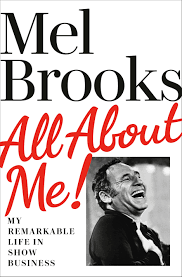
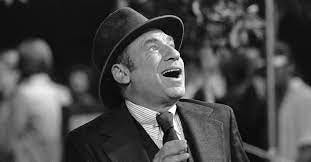
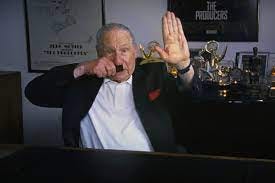
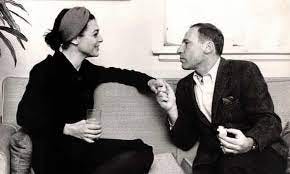
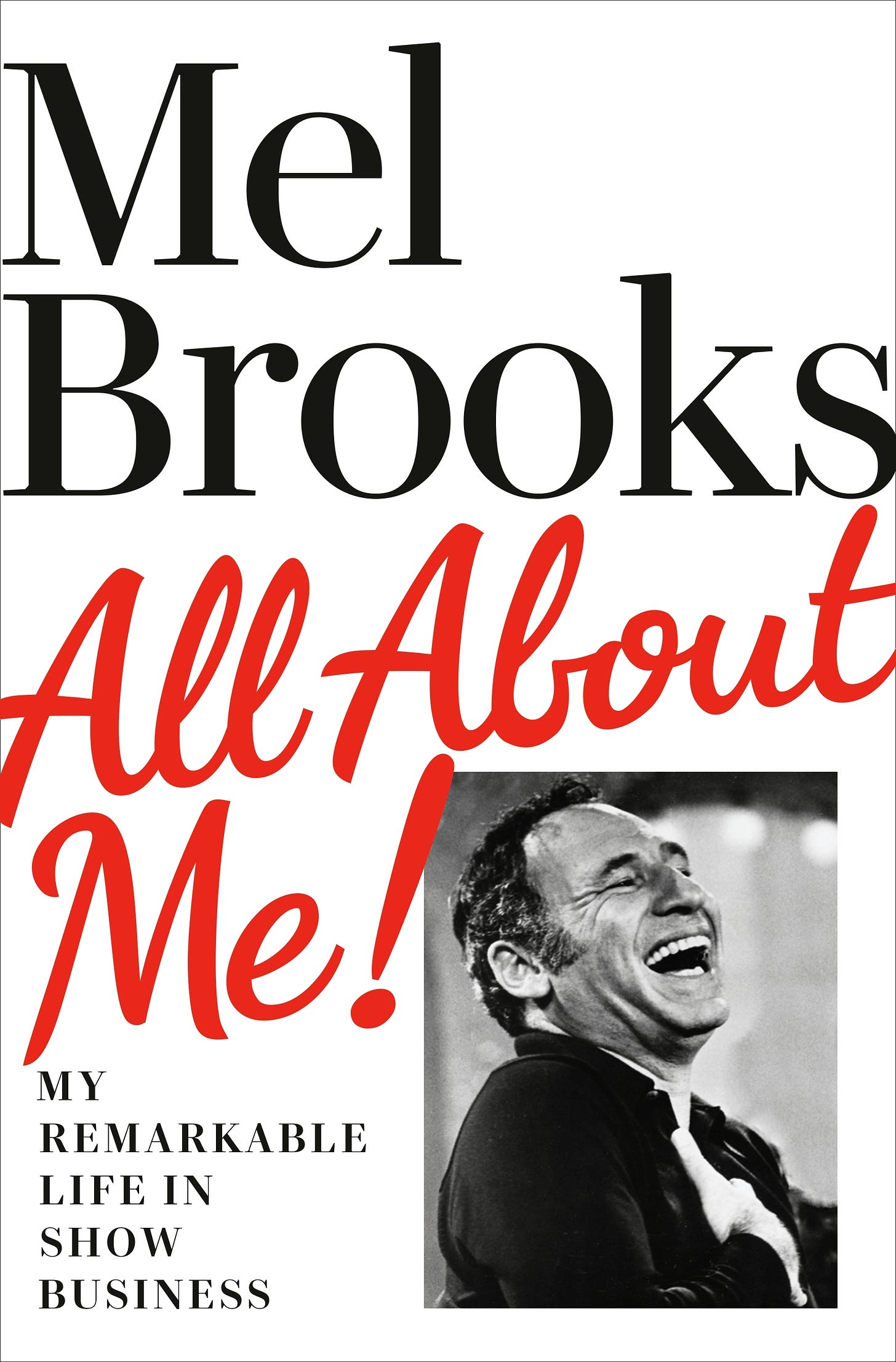
Great review. How could I not get this book after reading that.. ?! Cheers Simon. Once again, Sounds Good delivers.